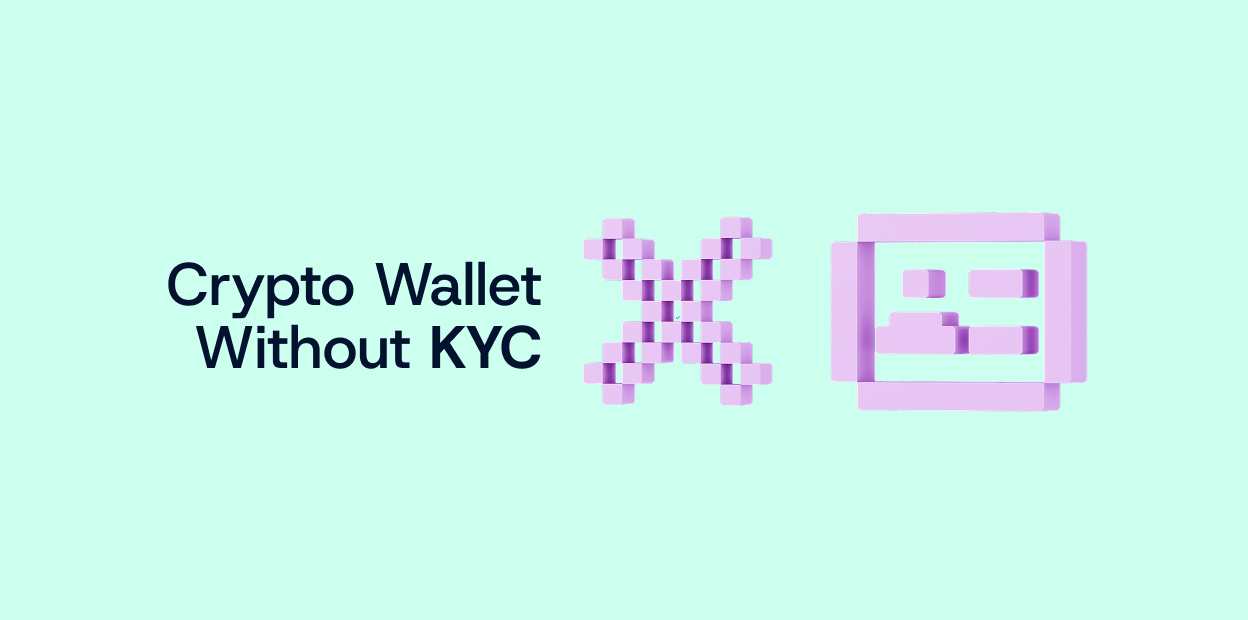Crypto Wallet Without KYC: What Is It, Really?

Privacy and control are two values crypto users refuse to compromise. However, most centralized platforms now require strict identity checks, also called Know Your Customer (KYC), which involves uploading IDs, taking selfies, and waiting for approval.
A no‑KYC wallet (like Velto) is a non‑custodial wallet that lets you hold and manage crypto assets directly from your own device. Because you aren’t asked for identity verification, it offers a high degree of privacy, but that also places full responsibility for security and compliance on you.
But what exactly are these wallets, and how do they work? Are they legal? What risks should you be aware of? Let’s discuss.
What Is a No-KYC Crypto Wallet?
A no-KYC wallet (short for no “Know Your Customer”) is a non-custodial crypto wallet that allows you to store and manage your crypto and/or other digital assets without submitting personal identification documents.
Basically, it let you be your own bank. When you create a no-KYC wallet, you’re not asked for your name, address, or government ID. Instead, the wallet generates a private key, a string of characters that acts as your password to access your funds. You (and only you) own that key.
This approach reflects the original philosophy of Bitcoin and decentralized finance (DeFi), which is heavy on freedom, privacy, and true asset ownership.
Benefits of No-KYC Crypto Wallets
No-KYC wallets offer several distinct advantages that make them appealing to privacy-focused users and global crypto holders.
- Privacy by Default
No-KYC wallets don’t collect personal data. As mentioned, you don’t have to submit IDs, selfies, or proof of address. Your wallet address is your only identifier. This drastically reduces your digital footprint and protects you from data leaks or hacks on centralized platforms.
- True Ownership of Funds
With a no-KYC wallet, you hold your private keys, which means your crypto is truly yours. Centralized exchanges can freeze, limit, or restrict withdrawals, while non-custodial wallets remove that entirely.
- Global Access
Crypto wallets without KYC work anywhere, regardless of local banking restrictions. You can access your funds as long as you have an internet connection, perfect for those in countries with limited crypto infrastructure.
- Faster Transactions
Forget waiting for approval. You can create a crypto wallet without KYC in seconds and start sending or receiving crypto immediately. That’s ideal for traders, freelancers, and anyone who values speed.
- Lower Fees and Full Flexibility
Since no third-party holds your funds, you can avoid custodial fees. Plus, you can connect your wallet to decentralized apps (dApps), participate in DeFi, or explore NFTs all from one place.
Types of No-KYC Wallets
There isn’t just one type of no-KYC wallet. There are several, each suited for different needs and levels of experience.
1. Web3 Wallets
Web3 wallets like Velto are popular because they’re easy to use and multi-chain. These wallets usually let you swap tokens, earn rewards, or buy assets right inside the app.
2. Hardware Wallets
Hardware wallets store your private keys offline, offering maximum protection. They’re ideal for long-term holders who value security over convenience.
3. Desktop and Paper Wallets
Desktop wallets are software you install on your computer, while paper wallets store your private keys on (you guessed it) paper. Both are private but require careful handling since losing the device or paper means losing access to your crypto.
Integrating with Exchanges and Swaps
A no-KYC wallet doesn’t mean you’re limited in what you can do. In fact, most Web3 wallets integrate directly with decentralized exchanges (DEXs) and swap services, giving you full trading freedom without compromising privacy.
For example, Velto connects you to decentralized liquidity sources through its built-in swap aggregator. This lets you exchange one token for another instantly without a centralized exchange account.
Final Thoughts
A no-KYC crypto wallet is the closest thing to true financial independence in the digital age. It gives you full control, privacy, and the freedom to interact with the blockchain on your terms, with no centralized gatekeepers required.
But as the cliché goes, that power comes with responsibility. In a non-custodial setup, you are the bank. That means keeping your seed phrase safe, avoiding scams, and understanding how decentralized systems work before moving large amounts of money.
Tools like Velto make this easier than ever. It’s built for users who want the best of both worlds: privacy and convenience. With velto, you can explore crypto freely, swap across chains, and manage assets securely, all without ever submitting your ID. You can download Velto from the App Store or Google Play Store.
FAQs
Are no-KYC wallets legal?
Most no-KYC wallets are legal to use. They’re simply software tools that let you interact with the blockchain directly. However, using them for illicit purposes is illegal, and regulations can vary by country.
Can my funds be traced in a non-KYC wallet?
While your name isn’t tied to your wallet, all blockchain transactions are public. Advanced analytics can sometimes link addresses to individuals. Using privacy networks may improve anonymity, but they come with legal risks.
Which types of wallets do not require KYC?
Non-custodial wallets like Velto do not require KYC. You control your private keys and there’s no identity verification.
Can I buy or withdraw crypto without KYC?
Yes, up to a point. Many DEXs and swap platforms let you trade crypto directly without KYC. However, withdrawing to fiat usually requires KYC on most regulated platforms.
Can I use a no-KYC wallet with DEXs?
Yes. Usually, you can connect your no-KYC wallet directly to DEXs and trade freely without revealing your identity.
Published on
October 20, 2025